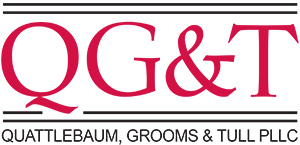Who Can Be A Chapter 12 Debtor?
March 20, 2017
by Mary-Tipton Thalheimer |
Farmers in the United States experienced an economic boom in the 1970s fueled in large part by an increased demand for farm commodities coupled with high inflation and escalating farmland values. In the 1980s, however, the demand for commodities fell and the value of farmland quickly followed suit, resulting in an economic bust that rivaled that of the Great Depression. An estimated twenty-five percent (25%) of the assessed valuation of America’s farmland disappeared during that time, and over one-third (1/3) of America’s farmers found themselves in serious financial trouble. The number of farm foreclosures soared, and farm bankruptcies reached record highs. For the farmers who wanted to keep their farms, their only bankruptcy options were to file for relief under Chapter 11 or Chapter 13 of the United States Bankruptcy Code (the “Code”). Unfortunately for many farmers, Chapter 11 proved to be too complicated and expensive, whereas the debt limits of Chapter 13 precluded many farmers from qualifying as Chapter 13 debtors.
In response, Congress enacted Chapter 12 of the United States Bankruptcy Code, which is specifically tailored to provide bankruptcy relief for farmers who need financial rehabilitation. A Chapter 12 debtor typically continues the farming operation as a debtor-in-possession, though a trustee will also be appointed to the bankruptcy case. The Chapter 12 debtor must submit a plan of reorganization within ninety (90) days of filing for bankruptcy relief, but no approval of the plan from creditors is necessary. Through the plan, Chapter 12 debtors are permitted to alter their secured debt by reducing the amount owed on the property to the property’s fair market value. Chapter 12 also provides benefits in the form of reducing interest rates to the current market rate and extending the payment period of the debt. Moreover, Chapter 12 debtors may propose plans in which they pay only a small fraction of the debt owed to unsecured creditors so long as all of the debtor’s disposable income is dedicated to the Chapter 12 plan throughout its duration.
Today, farmland values are once again soaring while the prices of commodities continue to fall. Though conditions today are not identical to those of the 1980s, there is reason to believe another agricultural economic bust could occur in the future, but unlike in the 1980s, Chapter 12 is already in place and provides many benefits to those who qualify to be Chapter 12 debtors. But not all farmers qualify for relief under Chapter 12. The Code sets forth very specific requirements for Chapter 12 eligibility, and any debtor that fails to meet all of the requirements will face dismissal or conversion of his or her Chapter 12 case. Thus, it is important that farmers know whether they qualify for Chapter 12 relief before they file their petition. Likewise, given the many benefits afforded Chapter 12 debtors at the expense of their creditors, creditors should also be aware of the Chapter 12 requirements to ensure only farmers who meet the strict requirements receive its benefits.
Note: The above is an excerpt from an article written by Mary-Tipton Thalheimer. Please click on the link below to read the entire article.
For more information about this article or other bankruptcy matters, please contact Mary-Tipton Thalheimer at mthalheimer@QGTlaw.com or 501.379.1742.
